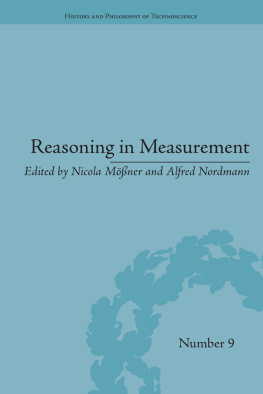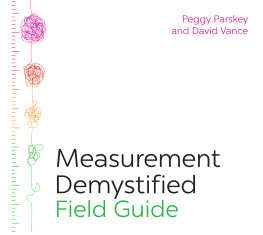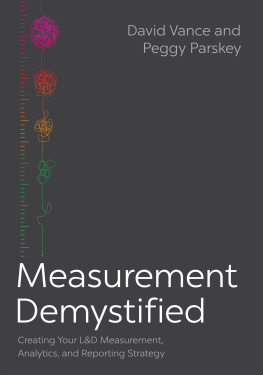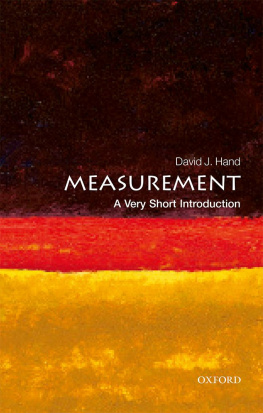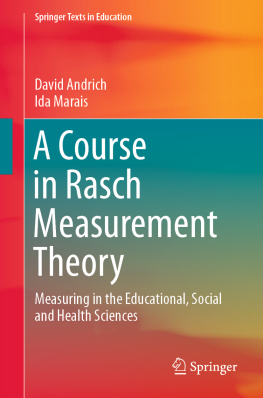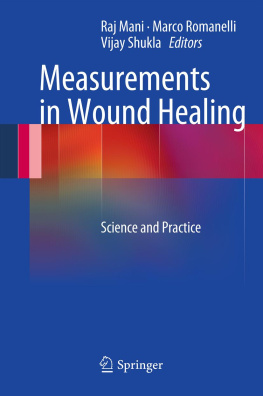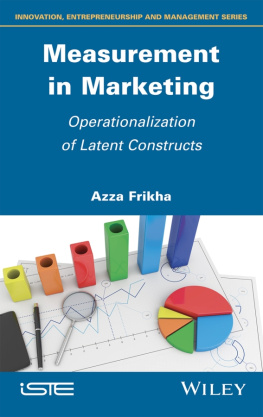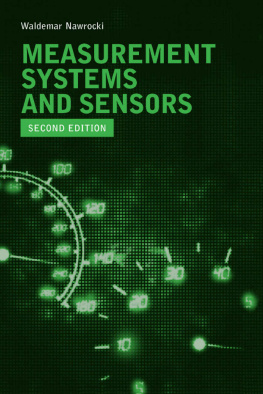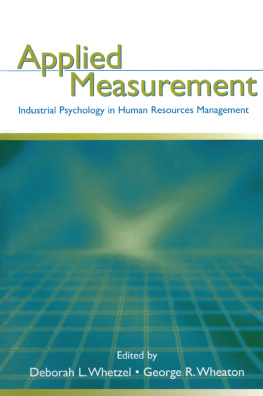Reasoning in Measurement
This collection offers a new understanding of the epistemology of measurement. The interdisciplinary volume explores how measurements are produced, for example, in astronomy and seismology, in studies of human sexuality and ecology, in brain imaging and intelligence testing. It considers photography as a measurement technology and Henry David Thoreaus poetic measures as closing the gap between mind and world.
By focusing on measurements as the hard-won results of conceptual as well as technical operations, the authors of the book no longer presuppose that measurement is always and exclusively a means of representing some feature of a target object or entity. Measurement also provides knowledge about the degree to which things have been standardized or harmonizedit is an indicator of how closely human practices are attuned to each other and the world.
Nicola Mner is a Junior Fellow at Alfried Krupp Wissenschaftskolleg Greifswald in Germany. She received her MA in German Literature and Linguistics at the University of Hamburg and her PhD in Philosophy at the University of Mnster. Her thesis is about the epistemology of testimony and the special case of media reports, published as Wissen aus dem Zeugnis anderer der Sonderfall medialer Berichterstattung (Paderborn: mentis 2010). She edited (together with Dimitri Liebsch) Visualisierung und Erkenntnis Bildverstehen und Bildverwenden in Natur- und Geisteswissenschaften (Cologne: Herbert von Halem, 2012). Currently she is writing a book about conceptual and epistemological questions concerning visual representations in science. Her main research interests comprise philosophy of science and social epistemology.
Alfred Nordmann is Professor of Philosophy at the Technische Universitt Darmstadt and adjunct professor at the University of South Carolina, Columbia. His interests in the philosophy of science concern the formation and contestation of fields of inquiry such as chemistry and theories of electricity in the 18th century, mechanics, evolutionary biology, and sociology in the 19th century. In particular, he has sought to articulate implicit concepts of science and objectivity. In 2000, he embarked on a similar endeavor in regard to nanoscience and converging technologies, which has led him to promote and develop a comprehensive philosophy of technoscience. Since the techno-sciences require new answers to the familiar questions of knowledge and objectivity, theory and evidence, explanation and validation, representation and experimentation, he is seeking to address these and related questions in his current work.
History and Philosophy of Technoscience
Series Editor: Alfred Nordmann
Titles in this series
Error and Uncertainty in Scientific Practice
Marcel Boumans, Giora Hon and Arthur C. Petersen (eds)
Experiments in Practice
Astrid Schwarz
Philosophy, Computing and Information Science
Ruth Hagengruber and Uwe Riss (eds)
Spaceship Earth in the Environmental Age, 1960 1990
Sabine Hhler
The Future of Scientific Practice Bio-Techno-Logos
Marta Bertolaso (ed.)
Scientists Expertise as Performance: Between State and Society, 18601960
Joris Vandendriessche, Evert Peeters and Kaat Wils (eds)
Standardization in Measurement: Philosophical, Historical and Sociological Issues
Oliver Schlaudt and Lara Huber (eds)
The Mysterious Science of the Sea, 17751943
Natascha Adamowsky
Reasoning in Measurement
Nicola Mner and Alfred Nordmann (eds)
Research Objects in their Technological Setting
Bernadette Bensaude Vincent, Sacha Loeve, Alfred Nordmann and Astrid Schwarz (eds)
Environments of Intelligence: From Natural Information to Artificial Interaction
Hajo Greif
Reasoning in Measurement
Edited by Nicola Mner
and Alfred Nordmann
First published 2017
by Routledge
2 Park Square, Milton Park, Abingdon, Oxon OX14 4RN
and by Routledge
711 Third Avenue, New York, NY 10017
Routledge is an imprint of the Taylor & Francis Group, an informa business
2017 selection and editorial matter, Nicola Mner and Alfred Nordmann; individual chapters, the contributors
The right of Nicola Mner and Alfred Nordmann to be identified as the authors of the editorial material, and of the authors for their individual chapters, has been asserted in accordance with sections 77 and 78 of the Copyright, Designs and Patents Act 1988.
All rights reserved. No part of this book may be reprinted or reproduced or utilized in any form or by any electronic, mechanical, or other means, now known or hereafter invented, including photocopying and recording, or in any information storage or retrieval system, without permission in writing from the publishers.
Trademark notice: Product or corporate names may be trademarks or registered trademarks, and are used only for identification and explanation without intent to infringe.
British Library Cataloguing in Publication Data
A catalogue record for this book is available from the British Library
Library of Congress Cataloging in Publication Data
A catalog record for this book has been requested
ISBN: 978-1-8489-3602-7 (hbk)
ISBN: 978-1-7814-4871-7 (ebk)
Typeset in Times New Roman by
Servis Filmsetting Ltd, Stockport, Manchester
Contents
NICOLA MSSNER AND ALFRED NORDMANN
PART I
Founding Figures
LAURA DASSOW WALLS
HASOK CHANG
PART II
Images as Measurements
PATRICK MAYNARD
PATRICK MAYNARD
THOMAS VOGT
LAURA PERINI
NICOLA MSSNER
TOBIAS SCHTTLER
PART III
Measuring the Immeasurable
LEAH MCCLIMANS
ANDREAS KAMINSKI
DONNA J. DRUCKER
EMILY K. BROCK
PART IV
Calibrating Mind and World
GODFREY GUILLAUMIN
MIEKE BOON
TERU MIYAKE
ERAN TAL
Mieke Boon is a full professor of Philosophy of Science in Practice at the University of Twente, The Netherlands. She received her PhD (with honor) in Chemical Engineering from the Technical University of Delft, and studied Philosophy at the University of Leiden. Between 2003 and 2008, she has been working with a VIDI research grant from the Dutch National Science Foundation (NWO) on developing a Philosophy of Science for the Engineering Sciences. Currently, she continues this line of research on an NWO Aspasia grant. She published Philosophy of Looking (2009 in Dutch: Filosofie van het Kijken: Kunst in Ander Perspectief). She is a co-founder of the Society for Philosophy of Science in Practice (SPSP). Her publications can be found at the UT Repository http://www.utwente.nl/gw/wijsb/organization/boon/publication%20list.html.
Emily K. Brock is a research scholar at the Max Planck Institute for the History of Science in Berlin, Germany. She has a MS in Biology from the University of Oregon and a PhD in History of Science from Princeton University. She was a 2013 Fulbright U.S. Senior Research Scholar in the Philippines and a 2014 Fellow of the Rachel Carson Center for Environment and Society in Munich. Her book on the history of American forest management, Money Trees: The Douglas Fir and American Forestry, 19001944

